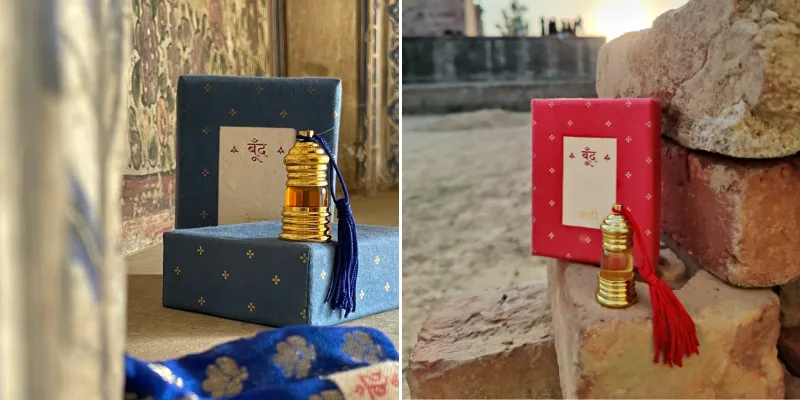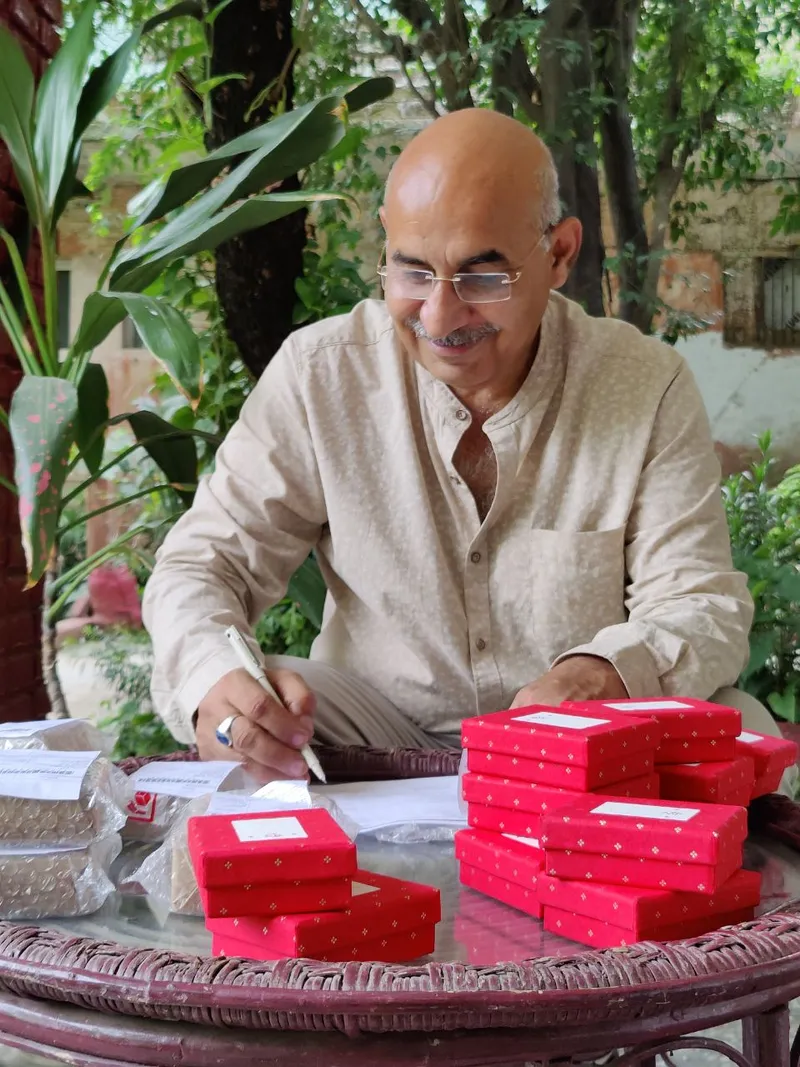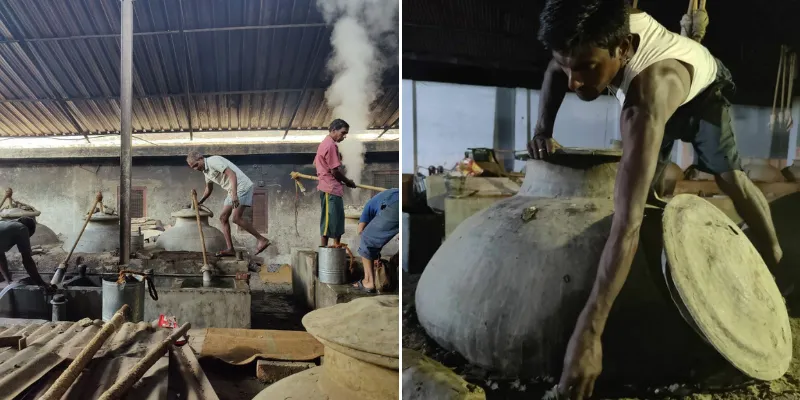How Boond is reviving the tradition of Kannauj's attars
Krati and Varun Tandon are on a heartfelt mission to revive the perfumery art of Kannauj. Their brand Boond became an official gifting partner for the G20 Summit, bringing Indian attars to the modern world.
Attars or ittars (perfumes) have been part of Indian heritage for centuries. However, their scent faded when globalisation opened doors for international brands to set up shop in India.
In Kannauj, a city in Uttar Pradesh, many families have practiced the art of ittar making for years, but these traditional practices began to wane off in the face of European and American brands.
This negligence of an art form weighed heavy on Kannauj residents Krati and Varun Tandon’s hearts. The brother-sister duo, who have been seeing this art since their childhood, were deeply passionate about preserving and promoting this unique cultural heritage and started Boond in 2021.
The Tandon siblings realised that the COVID-19 pandemic could be the last blow to perfumery art and made a short documentary on it and posted on Instagram.
At the time, Krati was visiting home from Germany where she worked with Amazon, and Varun, a filmmaker in Mumbai, was also in town.

Boond attars
Their main intention was not to establish a brand but to offer a lifeline to the artisans relying on the craft for their livelihood. Krati explains, "We thought, perhaps these artisans—lacking alternative sources of income—might find some work. Maybe a few hundred orders a year."
This wish would soon exceed all expectations. The documentary clicked among potential customers, and the brand saw 100 orders pouring in a single day—achieving its one-year target.
In over a year, Boond has experienced nearly 50% annual growth, all bootstrapped, with its monthly order volume exceeding 1,000 and and it has even established a presence in high-profile Bollywood weddings, including those of Vicky Kaushal and Katrina Kaif.
Notably, the brand was selected as one of the official gifting partners for the G20 Summit 2023 hosted in Delhi. "Participating in the G20 Summit was a source of immense pride for a business of our modest scale, and it serves as a powerful motivator," Krati affirms.
Business from a place of passion
For Krati and Varun, setting up Boond came from a place of passion. Krati initially launched the company as a moonlighting endeavour and transitioned full-time recently. Meanwhile, Varun is involved in his filmmaking career. However, the common thread that unites them is their unwavering love for Kannauj's perfumery and its skilled artisans.
Kannauj's perfumery artisans use the “Deg-Bhapka” technique to make attars. The traditional process involves a vessel (deg) with raw materials sealed securely with clay and placed atop a wood fire. The fragrant steam infused with aromatic oils passes through a bhapka (a distiller), where water cools the liquid, transforming it into a lasting and alcohol-free perfume.
The attar market in India has numerous entrants, but what sets Boond apart is its exceptional customerexperience. Some of the players are Kannauj Attar and Essential Oils and ISAK Fragrances.

Krati's father writing poems for each order
"Processing customer orders and delivering them to their doorsteps is standard practice for any brand. In our case, it's a family affair. My brother and I may be the public face, but our father, a poet, plays a unique role. He handwrites a shayari, tailored to the fragrance selected by the customer, which becomes a heartfelt part of our package," Krati shares.
If Boond was established solely for business, Krati says, their main focus would have been growth and scale. However, Boond is not your typical enterprise. Everything—from sustainable packaging to hand-written notes—is infused with a personal touch.
"We could provide customers with printed notes, but we're committed to preserving that personal connection that makes customers feel truly special," she affirms.
Boond’s fastest-selling attar is Maati—the fragrance of the first rain on dry ground or petrichor. Similarly, the duo have introduced earthy fragrances, which are quite in demand and also preserve the brand’s authenticity by not mixing different scents at once.
It also offers another customer favourite—Satparni—a magical fragrance distilled from the Saptaparni tree that blooms across India from October to December. Other fragrances include Sandali, Motiya, Gulabi, Khusa, and Oudh.
Boond’s attars are priced between Rs 1,399 to Rs 1,529 for a 3ml bottle, which Krati says, would last for 50 to 70 uses as a single drop. She adds that Boond caters its unique fragrances to a premium segment, justifying the high price range compared to market players.
How long will the fragrance linger?
As per a Volza report, India is one of the largest exporters of attars in the world. According to the MSME ministry’s portal, the global fragrance and flavour industry is worth $24.1 billion.
India contributes about $500 million to this industry, with the market growing only 11% in the last few years. And rising personal care, brand awareness, increasing disposable income, growing demand in middle-class people, and affordable price of fragrance will contribute to its growth in upcoming years.

Glimpses of the making of Boond attars
To date, Boond has dispatched over 20,000 orders in the US, Europe, Australia, Singapore, etc. Krati points out that the export market has consistently embraced attars overall. The real opportunity for growth, she believes, lies in expanding attars presence within the Indian market.
"As people increasingly adopt sustainable lifestyles and become more discerning about what they apply to their bodies, the demand for attars is poised to surge in the future. India already has a recognised presence in the export market, which positions it for significant growth in the times ahead," Krati anticipates.
Other than selling on its D2C website and ecommerce platforms like Amazon and Amala Earth, Boond has also entered the offline retail space with its presence in stores like Okhai in Mumbai and Tapri in Jaipur, and it continues to expand.
The siblings along with the 12 artisans are working on making some new fragrances to launch soon.
Edited by Suman Singh







